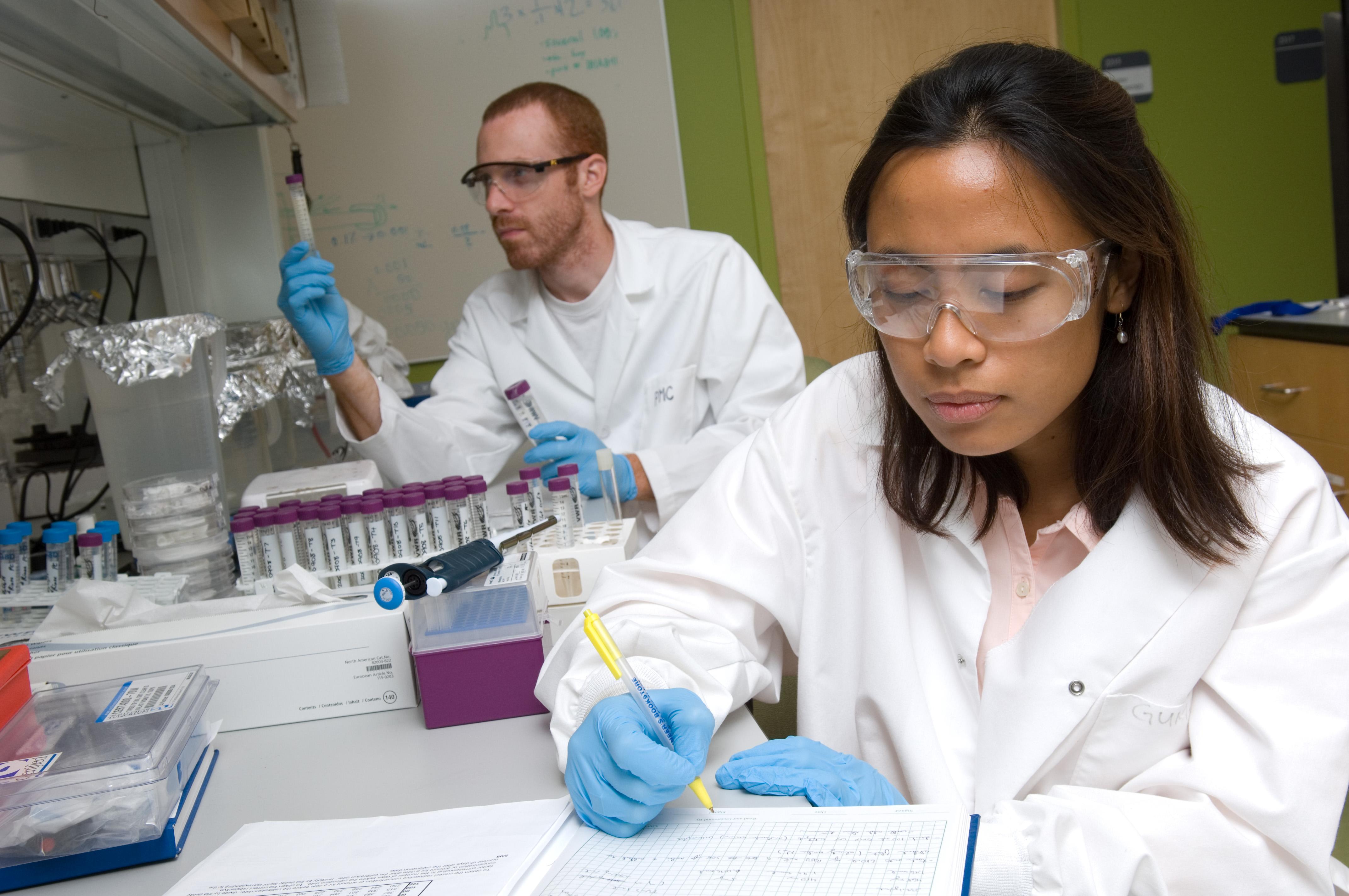Georgia Tech’s Research Next Initiative Concludes With Groundbreaking Achievements
Dec 16, 2024 —

The next is now at Georgia Tech.
The Institute’s Research Next initiative has officially concluded with a legacy of successes that help redefine the future of interdisciplinary research. It launched nearly five years ago as a bold strategy to enhance Georgia Tech’s research capabilities and address some of the world’s most pressing challenges.
Research Next was composed of three phases. At its outset, the Commission on Research Next tapped the knowledge and expertise of Georgia Tech faculty, staff, and students to broadly analyze the future research landscape for Georgia Tech and for other research-intensive universities.
Then, a second team of faculty, staff, and students worked on Phase 2 of the effort. They created goals aligned with the Institute Strategic Plan to help Georgia Tech respond to the challenges identified in Phase 1. Phase 3 assembled implementation teams to create strategies for achieving the goals laid out in Phase 2.
Tim Lieuwen, Georgia Tech’s interim executive vice president for Research and Research Next co-chair, said he is excited about the initiative’s achievements and its “transformative outcomes.”
“Thanks to the valuable input from our Georgia Tech community, the Research Next team created a framework for the role of research universities in solving societal problems. That led to several significant Georgia Tech initiatives, including HBCU engagement, launching center-scale efforts, research leadership development, and research faculty support. I am particularly proud these initiatives are centered around supporting and developing the people who make our research enterprise thrive,” he said.
Key Outcomes
- Scaling Research Operations: Identified pain points in invoicing and procurement, onboarded a research center startup manager, and advanced project management workflows.
- HBCU/MSI Partnerships: Hired a program manager, hosted the 2023 Research Collaboration Forum with 170 attendees, and launched CollabNext, a software tool to help foster partnerships between Georgia Tech and HBCU faculty members who have similar interests. Our HBCU program was highlighted by the White House and President of the United States.
- Research Faculty Support: Established an associate vice president for research faculty, improved onboarding, and launched several mentoring programs.
- Community Building: Fostered connectedness with events like Research Administrators’ Day and launched Spotlight Awards for staff, faculty, and postdoctoral researchers.
- Improved Administration: Updated 40-plus policies, expanded training, and began developing a chatbot to streamline award lifecycle processes.
- Leadership Development: Created the Research Leadership Academy, launching in Spring 2025, to prepare leaders for large-scale research initiatives.
“Research Next has reshaped our interdisciplinary research framework,” said Research Next co-chair Mark Whorton. “By addressing operational excellence and enhancing strategic collaborations, we've cultivated a more cohesive and dynamic research setting that drives innovation and discovery."
One of the enduring legacies of Research Next is an annual strategic analysis to shape new research and enhance existing projects. It’s meant to foster collaboration, improve communication, and inform hiring priorities. The strategic analysis is an integral component of Georgia Tech President Ángel Cabrera’s Big Bets.
Chaouki Abdallah, former Georgia Tech executive vice president for Research, launched Research Next to equip Georgia Tech for future challenges through “innovation, expertise, creativity, and a commitment to improving lives.”
In celebrating its conclusion, Abdallah said, "Research Next has demonstrated that when we come together with a shared vision and plans, we achieve remarkable things. In addition to advancing the Georgia Tech’s research capabilities, the outcomes of this initiative reinforce the Institute’s commitment to serving society as a whole. I am excited to see how Georgia Tech will build on this foundation to drive meaningful impact regionally, nationally, and globally."




